Tracing Shapes worksheets activities for Ages 6-7
18 filtered results
-
From - To
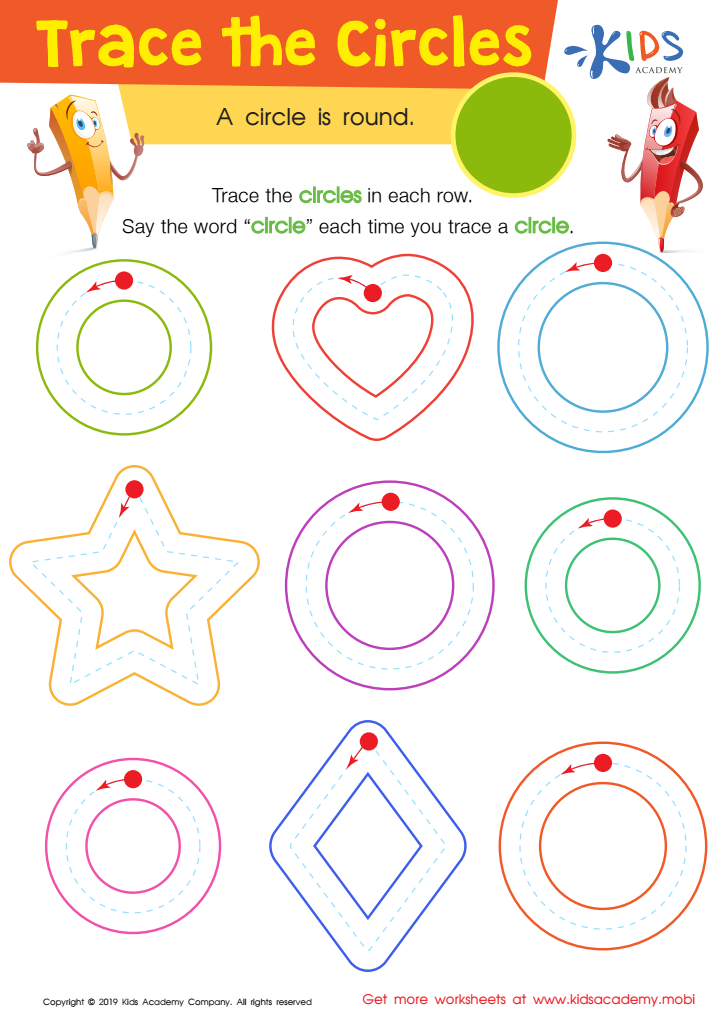

Trace The Circles Worksheet
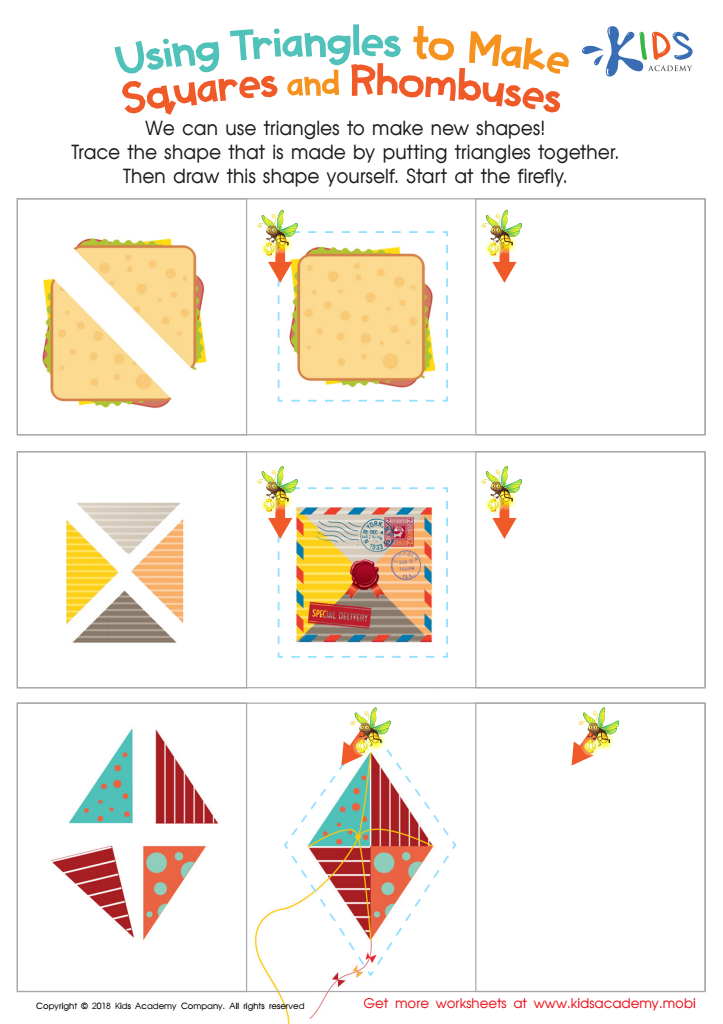

Using Triangles to Make Squares and Rhombuses Worksheet
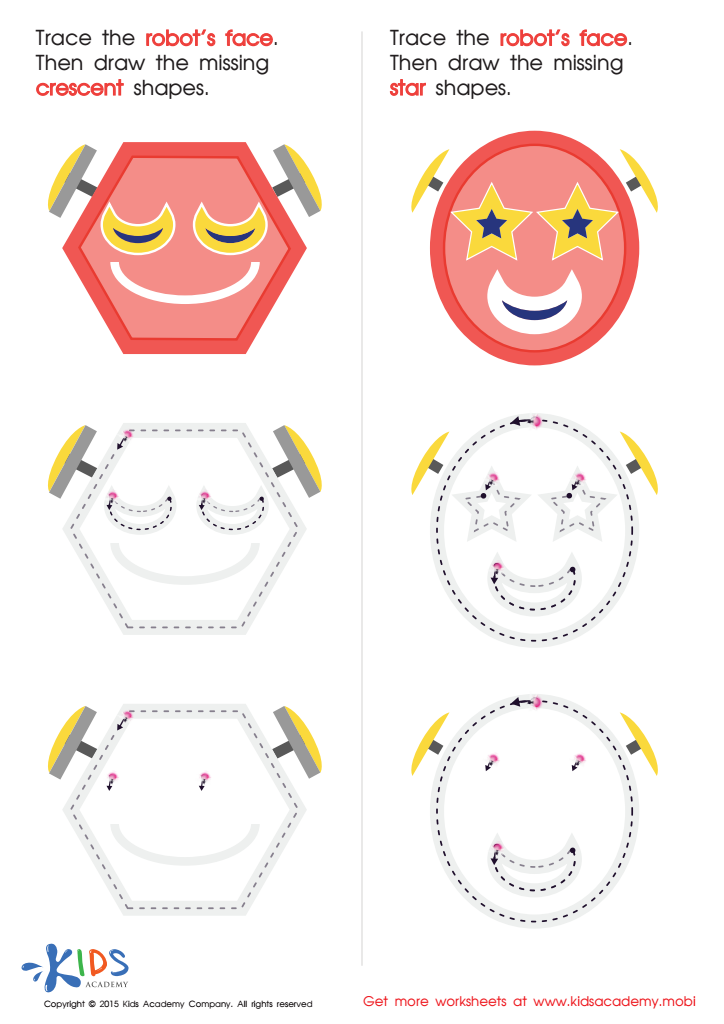

Composing a Robot's Face of Crescents And Stars Worksheet
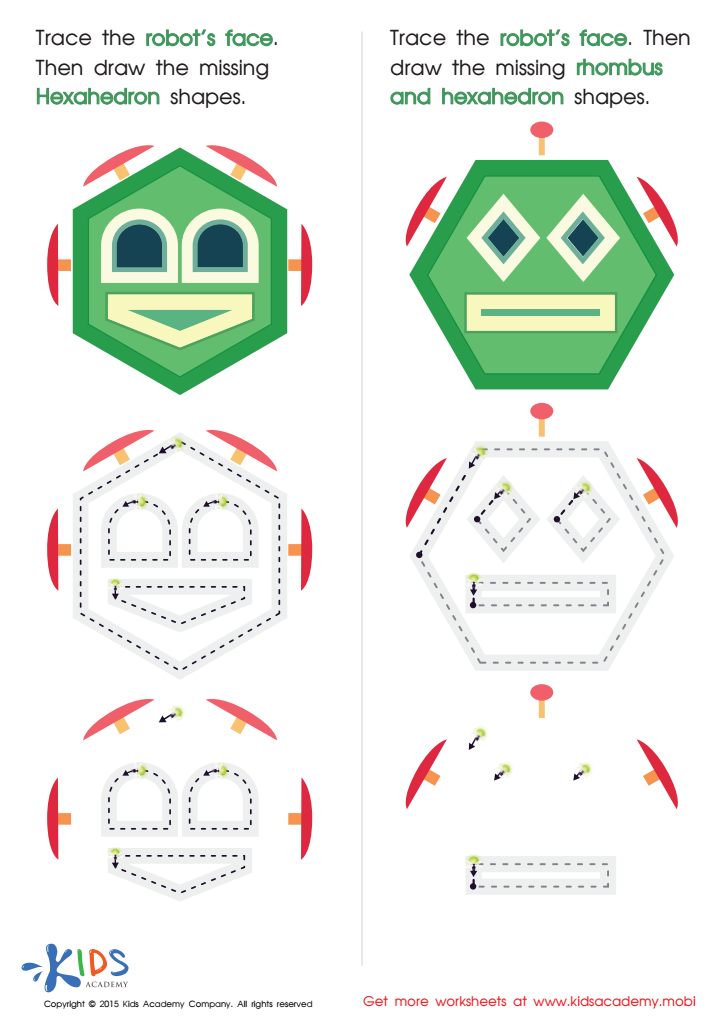

Practice Drawing Hexahedrons And a Rhombus Worksheet


Drawing a Triangle Worksheet
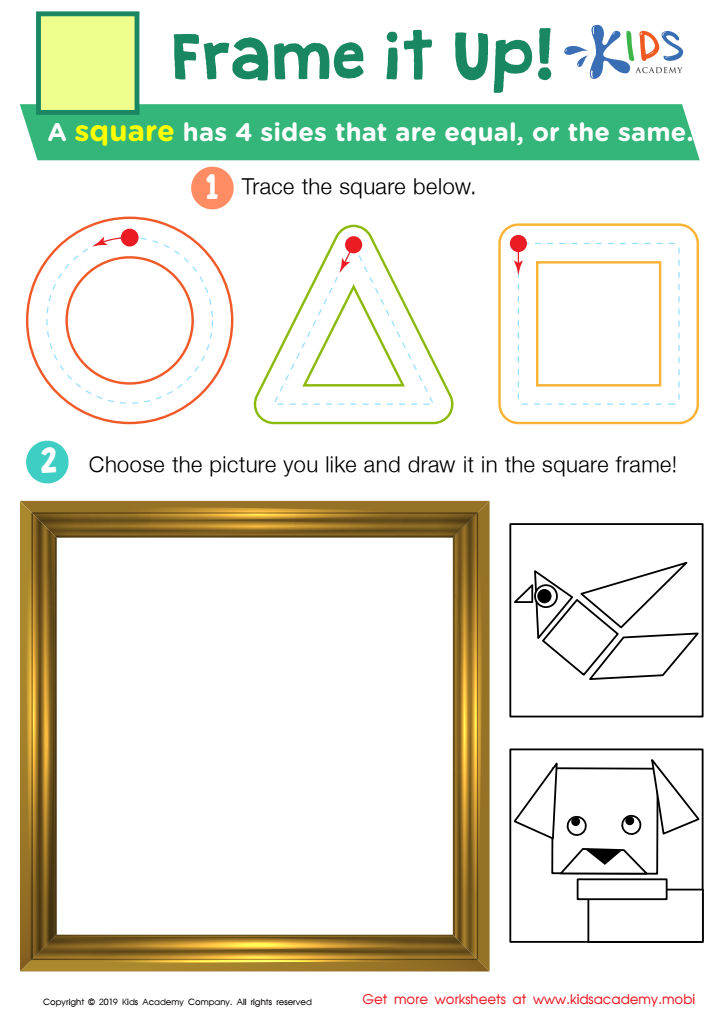

Frame it Up Worksheet
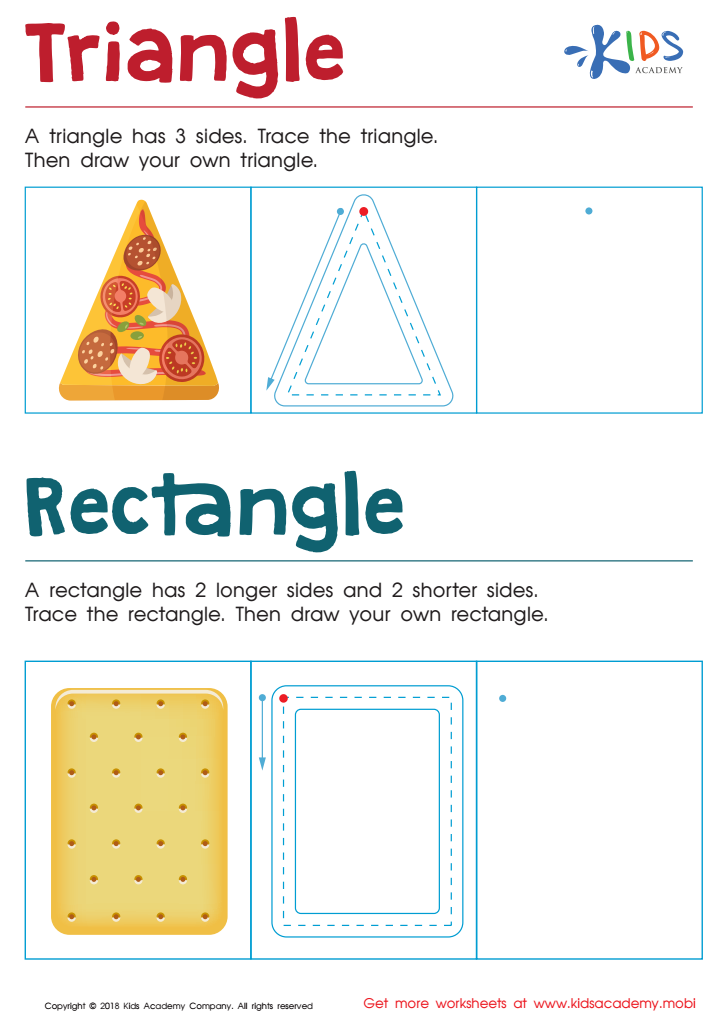

Triangle Rectangle Worksheet
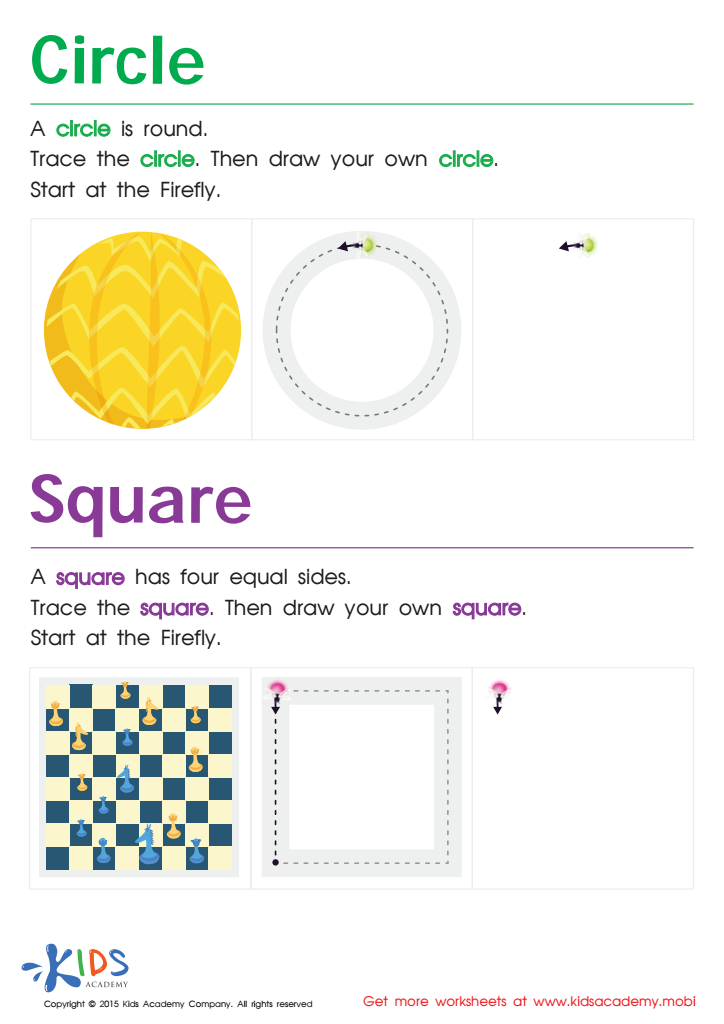

Trace And Draw a Circle And a Square Worksheet
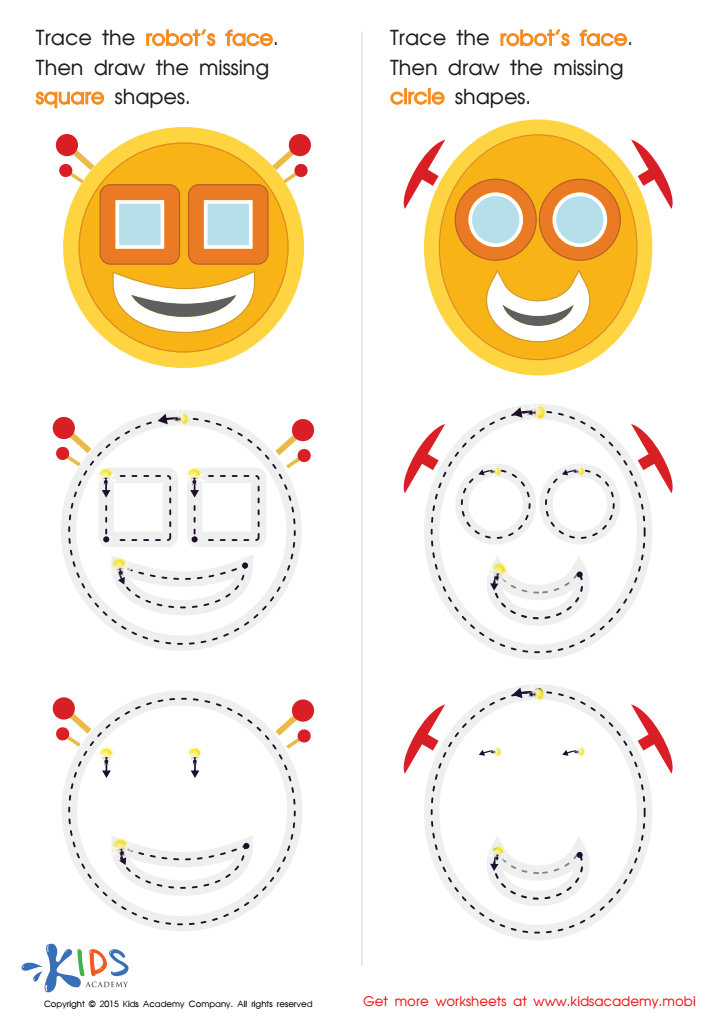

Practicing to Draw Circles And Squares Printable
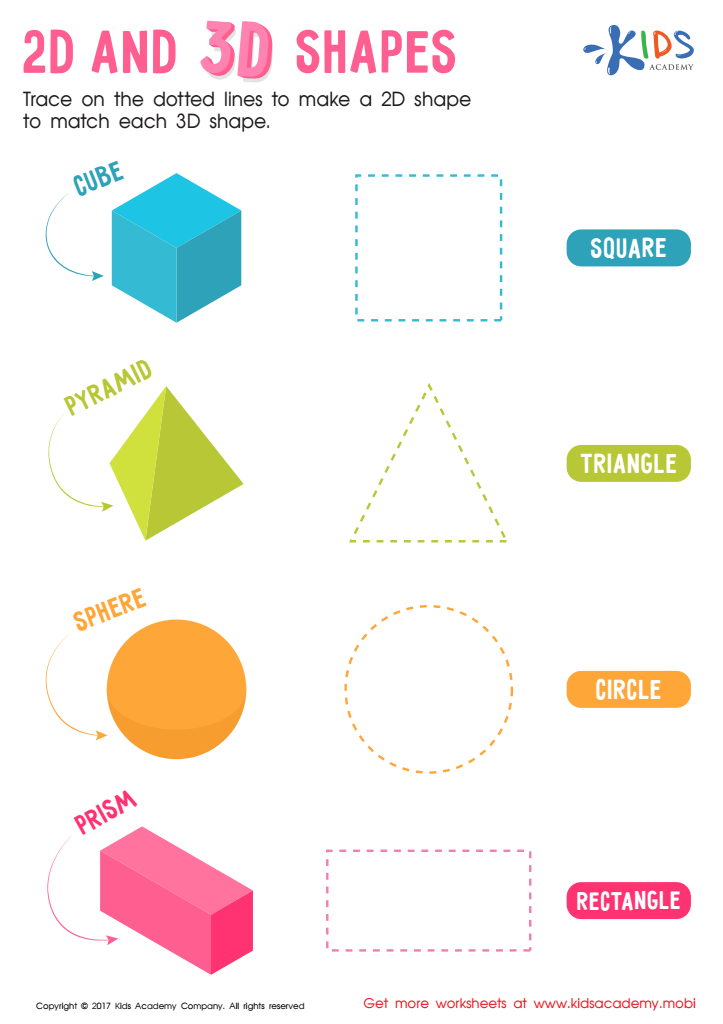

2D and 3D Shapes Worksheet


Drawing with a Little Monster Worksheet
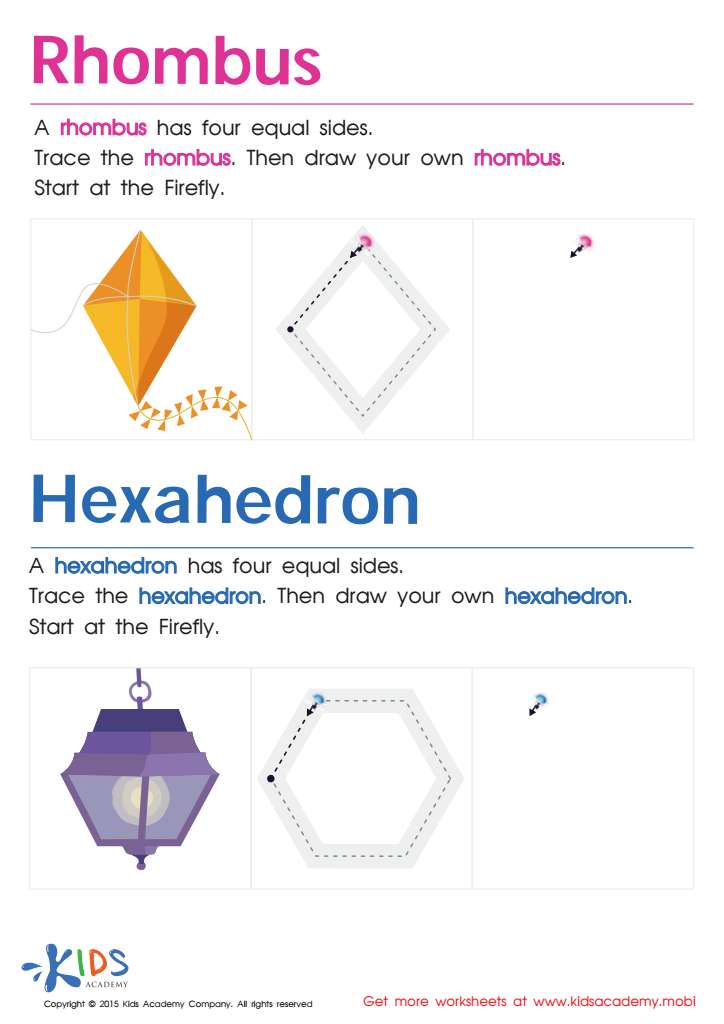

Draw a Rhombus And a Hexahedron Printable
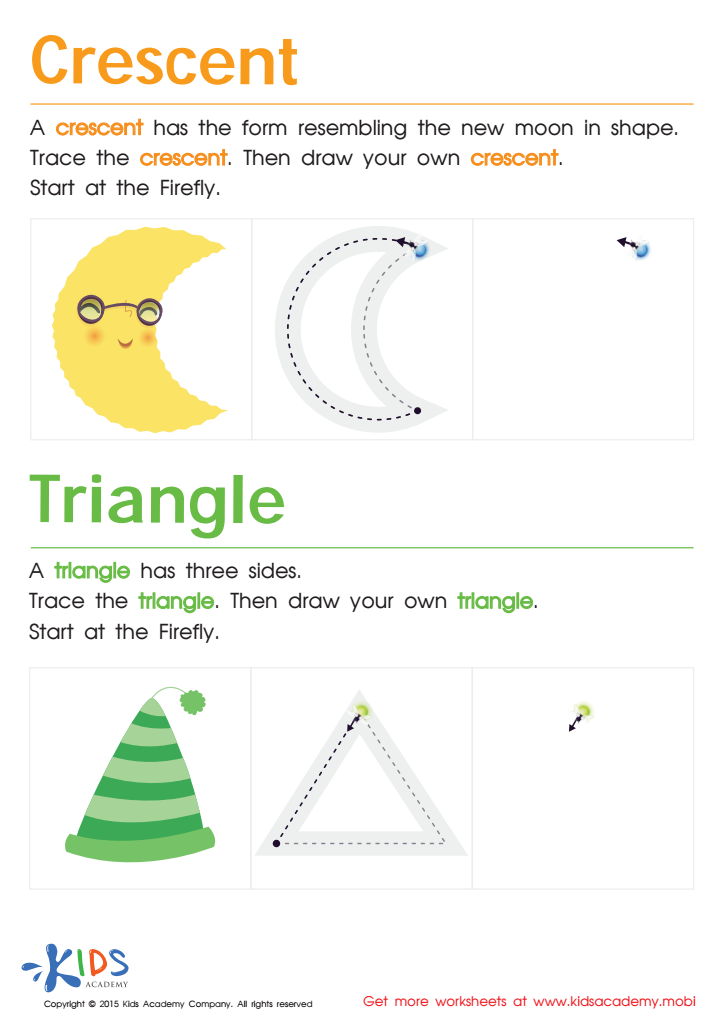

Learning to Draw Crescents And Triangles Worksheet
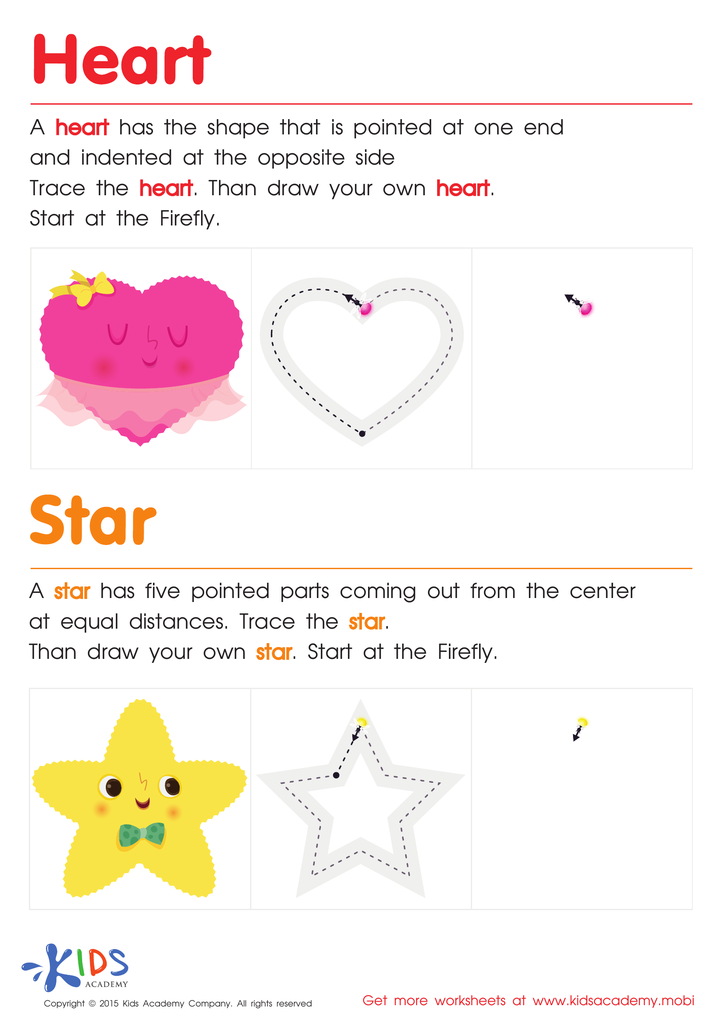

Let's Learn to Draw Hearts And Stars Printable
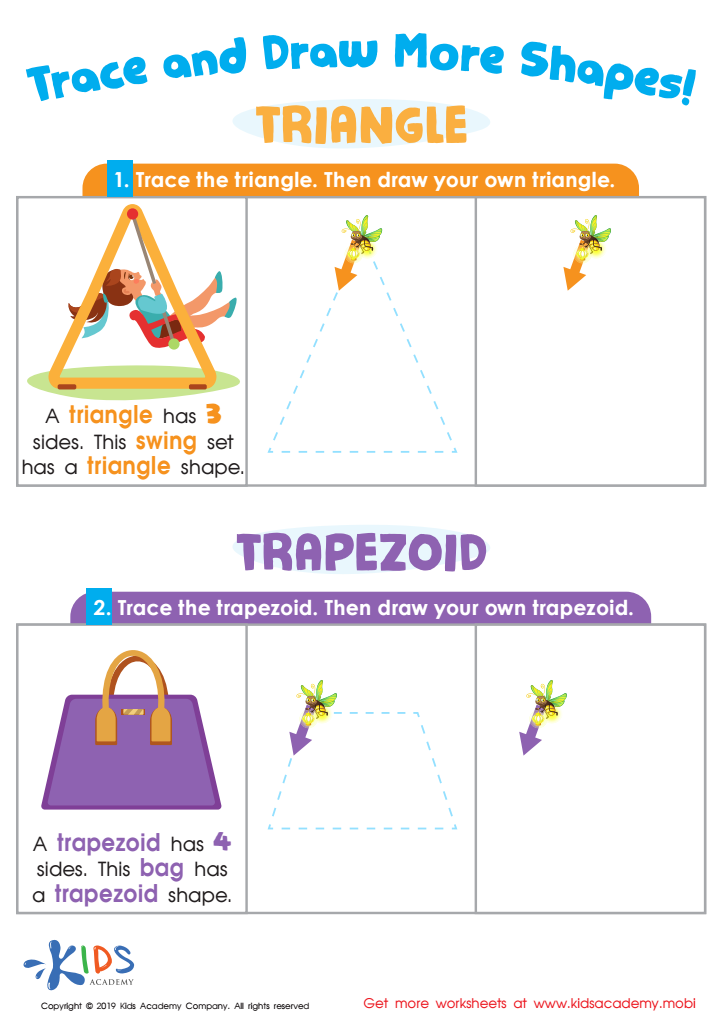

Trace and Draw More Shapes Worksheet
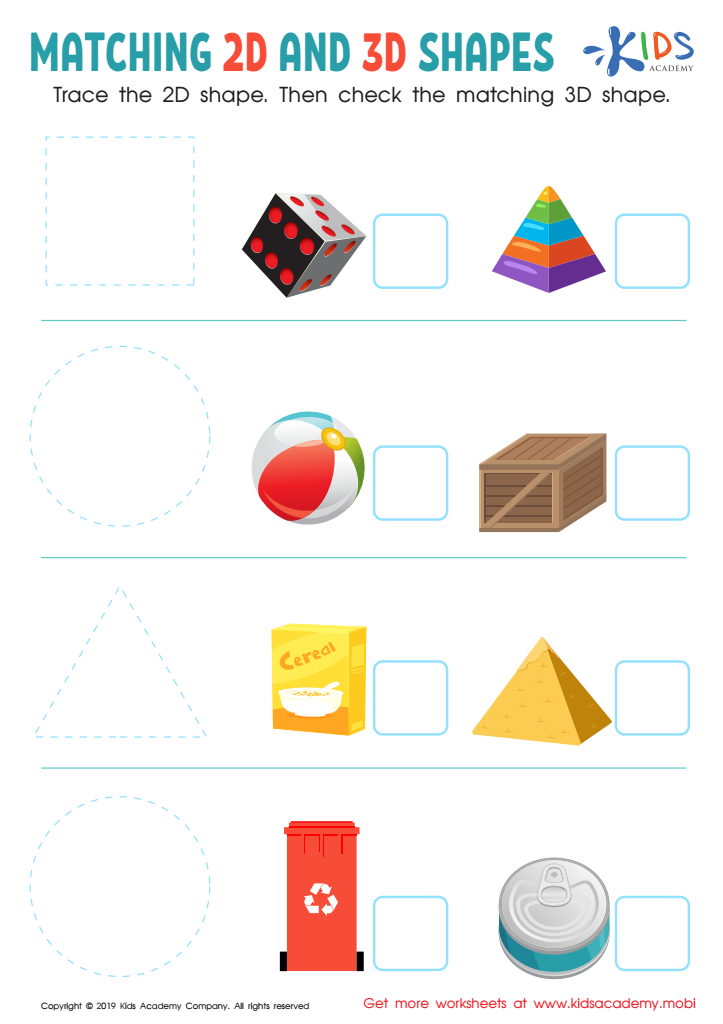

Matching 2D and 3D Shapes Worksheet
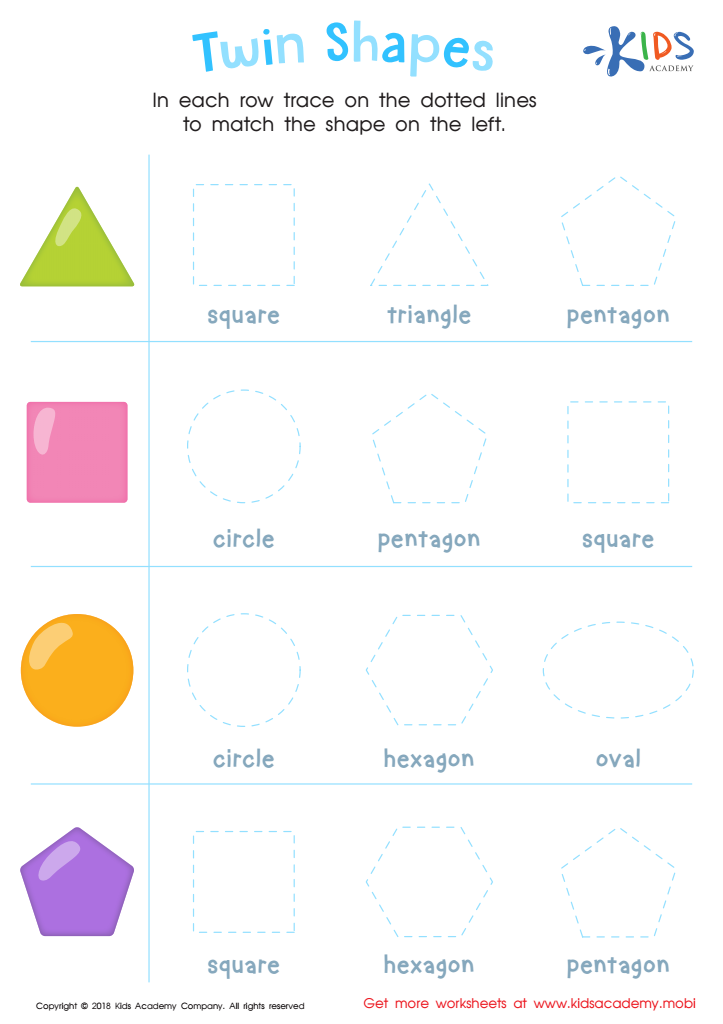

Twin Shapes Dot-to-Dot Worksheet
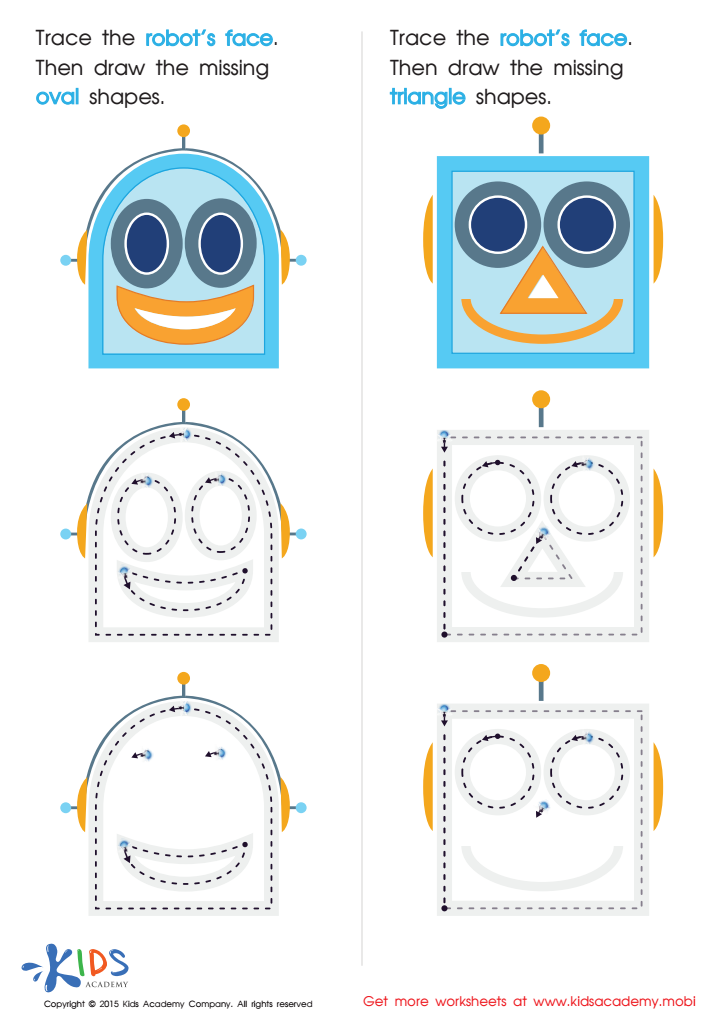

Drawing Ovals And Triangles with Fun Printable
Tracing Shapes worksheets activities are a fundamental tool in early childhood education, offering a multitude of benefits for young learners. These activities, tailored to engage children in the exploration of geometry through hands-on practice, serve as a cornerstone in developing fine motor skills, understanding spatial relationships, and laying the groundwork for more complex mathematical concepts.
Firstly, engaging in Tracing Shapes worksheets activities fosters fine motor skill development. As children trace over different shapes, they refine their hand-eye coordination and pencil grip. These are crucial skills that not only prepare them for writing but also enhance their ability to perform everyday tasks with precision and care.
Moreover, these worksheets serve as a playful yet effective method for children to grasp the concept of spatial awareness. Through tracing, children begin to understand how shapes relate to each other and to the space around them. This foundational knowledge is pivotal as they advance in their mathematical journey, delving into topics such as geometry, measurement, and spatial reasoning.
Tracing Shapes worksheets activities also pave the way for recognizing and naming shapes, an essential skill in the early learning curriculum. By repeatedly tracing various shapes, children become familiar with their forms, learning to identify and differentiate between them. This recognition plays a significant role in their cognitive development, enhancing their memory and observational skills.
Furthermore, these activities are incredibly versatile, easily adaptable to cater to different learning paces and styles. Whether in a classroom setting or at home, Tracing Shapes worksheets can be customized to challenge and engage children, making learning both fun and effective.
In essence, Tracing Shapes worksheets activities are more than just a pastime; they are a vital educational tool that nurtures young minds. By integrating these activities into early learning, educators and parents can provide children with a robust foundation, not only in mathematics but in a spectrum of cognitive and motor skills development.
 Assign to the classroom
Assign to the classroom












